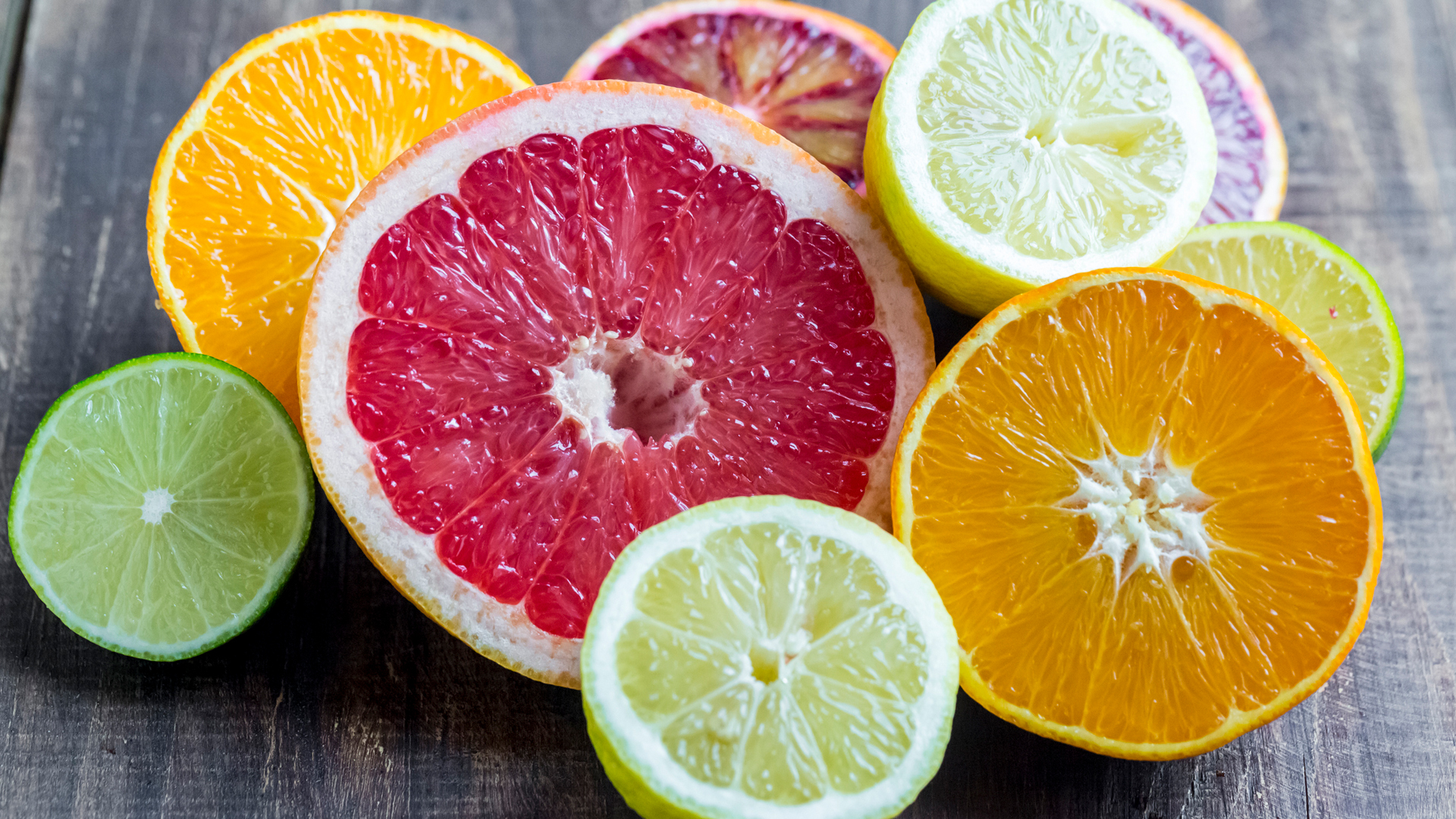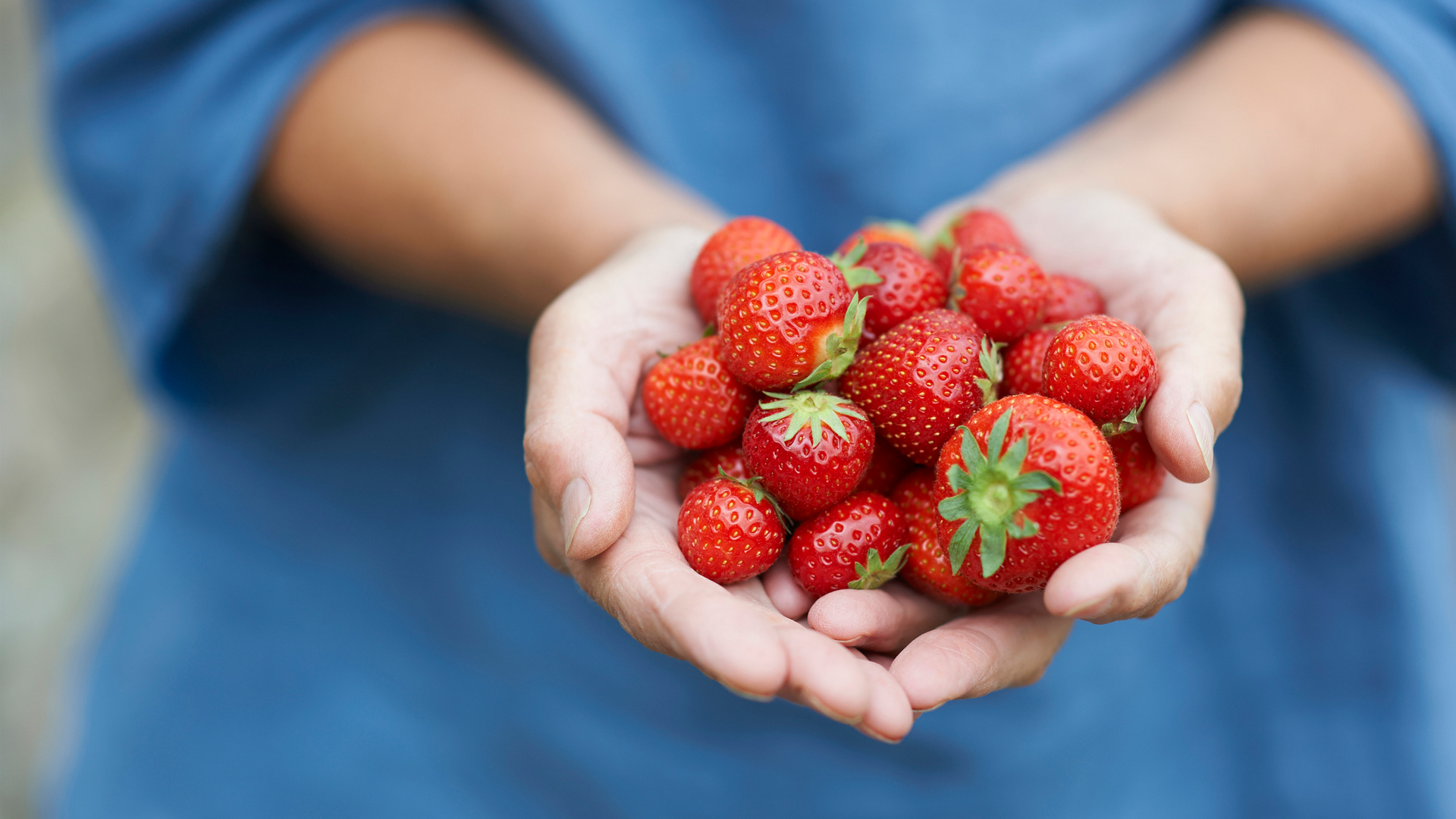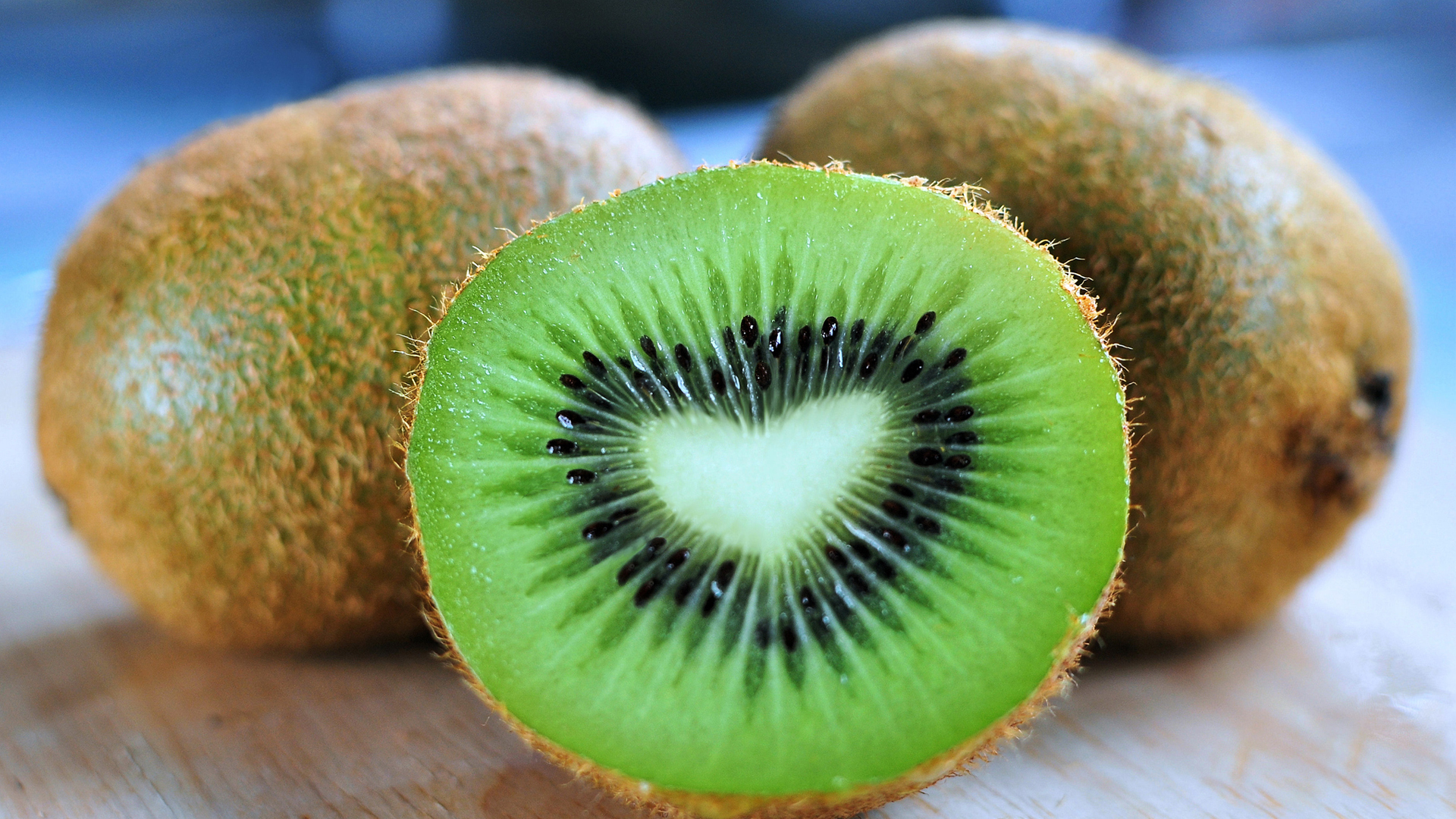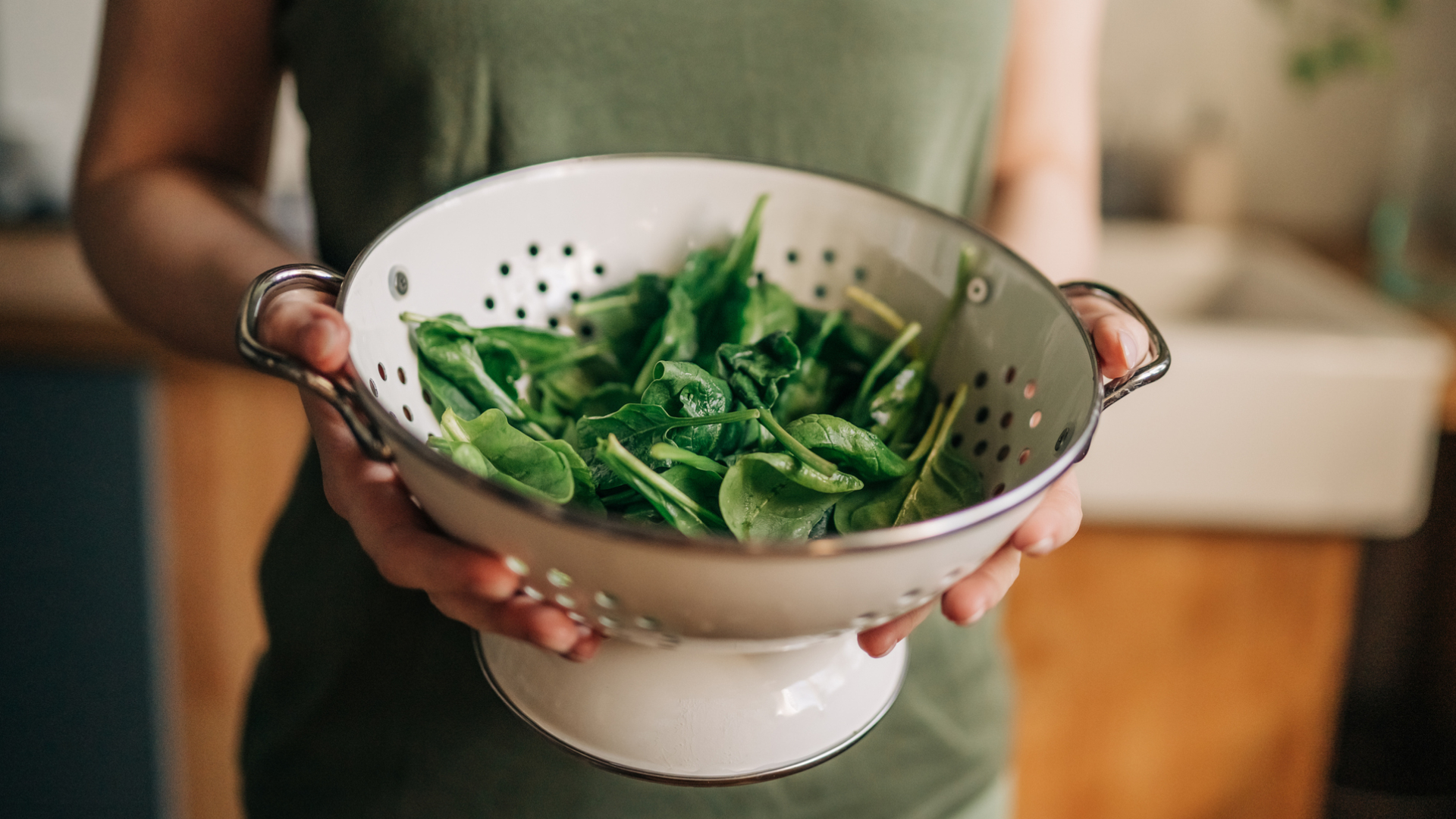Nine sources of vitamin C to boost your immune health
Mix up your diet with these these tasty sources of vitamin C

Vitamin C is one of the essential nutrients needed to maintain a healthy immune system, so it’s important to ensure that you’re including enough sources of vitamin C in your diet. But as well as supporting our immune system, vitamin C plays other roles in ensuring we stay healthy.
According to dietician Helen Bond, vitamin C has a key role to play in making collagen (a component of our blood vessels, bones, cartilage, gums, skin and teeth), so it’s vital for helping with wound healing.
“It is also needed for our nervous system, helping to support and strengthen our immune system, and as an antioxidant, it helps mop up cell damaging free radicals,” she adds.
A lack of vitamin C can result in scurvy, “a condition that is practically unheard of these days”, according to Bond .She adds that it is very rare to suffer from a deficiency of vitamin C in the U.S. and most age groups can get enough from their daily diets. The daily RDA (Recommended Dietary Allowance) of vitamin C for adults is 90mg for men and 75mg for women.
What about vitamin C supplements? Bond warns that large amounts of vitamin C – that’s over 1000mg/1g a day – can cause side-effects such as stomach pains, diarrhea and flatulence, but you’re more likely to get this much through taking supplements.
“Symptoms usually disappear once you stop taking the supplements,” she says. “You should be able to get all the vitamin C you need by eating a varied and balanced diet. Therefore, if you do take vitamin C supplements, do not take too much as this could be harmful.”
She also says that there is “very little evidence that vitamin C supplements prevent colds or speed up recovery” and to that end, "it’s even more important to focus your attention on enjoying a balanced and varied diet, including lots of vitamin C-rich foods".
1. Oranges (and other citrus fruits)
These brightly coloured fruits are renowned for their vitamin C content. In fact, one orange contains a staggering 87mg of vitamin C — over 100% of the daily recommended amount for women.
Oranges also contain flavonoids, a type of antioxidant. These help protect the body from the damage caused by free radicals in the body. Free radicals can be produced in the body thanks to external factors such as pollution, chemicals and UV light.
Other citrus fruits such as lemons, limes and satsumas also contain healthy levels of vitamin C. Just 100g of grapefruit contains around 37mg of vitamin C, whilst limes pack in 29mg per 100g. Lemons are a good source of vitamin C, containing around 53mg per 100g.

2. Potatoes
Just one medium potato, weighing around 240g, packs in a healthy 42mg of vitamin C, around half of the RDA of vitamin C. Plus, the skin of the humble spud also contains minerals including magnesium and potassium. Potassium has been shown to help with heart health.
Potatoes are also a good source of fiber, which can aid digestion.
It’s worth noting, however, that potatoes do not contribute to your recommended intake of five portions of fruit and vegetables a day, whereas sweet potatoes do.
3. Strawberries
A 100g portion of strawberries contains 59mg of vitamin C which is two-thirds of the RDA of vitamin C for men.
This sweet fruit is filled with antioxidants, in particular anthocyanin and quercetin, said to help protect against heart disease. There’s also fiber and potassium in these tiny, tasty fruits.
Other berries such as raspberries and blackberries also contain healthy levels of vitamin C.

4. Broccoli
Broccoli, a cruciferous vegetable, contains a staggering 89mg of vitamin C, which is well over the RDA of vitamin C for women.
As well as this, broccoli does actually contain some protein, needed for muscle growth, as well as a wealth of processes that take place in the body; 1 cup provides about 3g of protein, which is low, but surprising for a green vegetable.
Vitamin K is another nutrient found in broccoli; this vitamin helps with blood clotting as well as supporting bone health.
5. Kiwis
Just one kiwi contains a healthy 56mg of vitamin C, over half of the RDA of vitamin C.
Considering that kiwis are smaller than oranges, a similar weight of kiwi to orange does contain a similar amount of vitamin C. It’s the skin of kiwis that also contains vitamin C. You might want to opt for a smooth kiwi if you plan on eating the skin; it might be a little more enjoyable!
Kiwis also contain fiber, to support a healthy digestion, as well as plenty of antioxidants.

6. Tomatoes
Often mistaken for a vegetable, 100g of tomatoes contains 27mg of vitamin C, which is about a third of the RDA for men.
Tomatoes also contain an abundance of lycopene — this antioxidant is what gives tomatoes their red hue. It’s said to be good for supporting the heart.
7. Spinach
A leafy green veg, spinach contains 28mg of vitamin C per 100g, which is just under a third of the RDA of vitamin C for men.
This isn’t the only nutrient packed into spinach, however. It’s filled with vitamin K and calcium, both of which support bone health. As well as this, there’s plenty of iron in spinach, which is needed to make red blood cells in the body. These red blood cells carry oxygen, providing us with energy.
- Related: Which vegetables are high in iron?
- Related: How to boost your immune system naturally

8. Cabbage
Another cruciferous green vegetable, 100g of cabbage contains 37mg of vitamin C, half the RDA for women, and well over a third of the RDA of vitamin C for men.
Cabbage also contains fiber, as well as bone-supporting vitamin K. Potassium in cabbage also contributes to heart health, and helps maintain healthy blood pressure levels.
9. Blackcurrents
These tiny berries contain upwards of 122mg of vitamin C per 100g, according to studies. This is well over the RDA for both men and women.
Blackcurrants are also filled with antioxidants, as well as omega-6, needed for heart health. Studies have shown that blackcurrants can help lessen the chances of cardiovascular related illness, as well as brain and eye illnesses.
This article is for informational purposes only, and is not meant to offer medical advice.
Sign up for the Live Science daily newsletter now
Get the world’s most fascinating discoveries delivered straight to your inbox.
Lucy is a freelance journalist specializing in health and fitness. She was previously the Health and Fitness Editor across various women's magazines, including Woman&Home, Woman and Woman’s Own as well as Editor of Feel Good You. She has also previously written for titles including Now, Look, Cosmopolitan, GQ, Red and The Sun. She lives and breathes all things fitness; working out every morning with a mix of running, weights, boxing and long walks. Lucy is a Level 3 personal trainer and teaches classes at various studios. Plus, she's pre- and post-natal trained.











